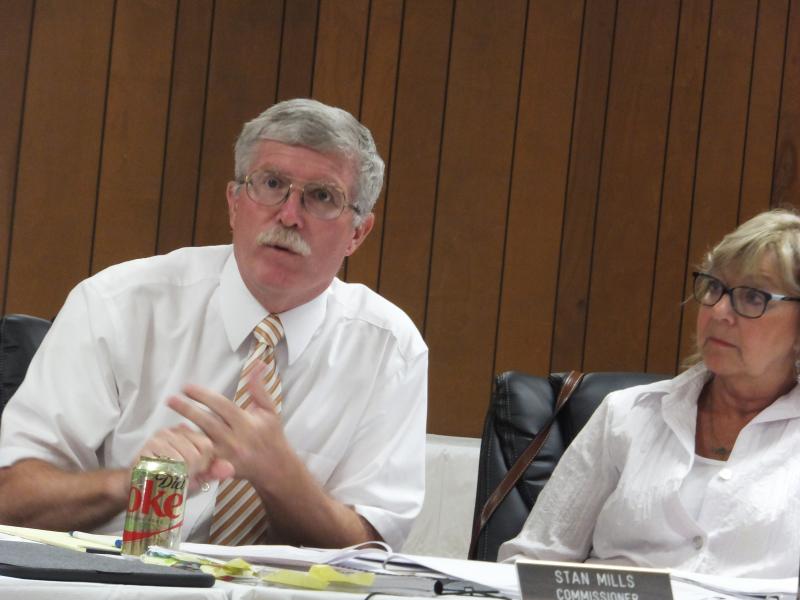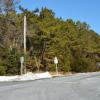Rehoboth considers parking changes
Rehoboth Beach commissioners are considering extending the use of parking meters on Rehoboth Avenue.
Commissioner Paul Kuhns suggested a pilot program that would see the meters reduced to 50 cents or $1 an hour during the off-season. No vote has been taken; Kuhns suggested a parking committee to discuss meter use and other parking issues.
In addition to meters, Kuhns asked the commissioners to consider changes to the parking permit structure and off-street parking in residential areas.
Kuhns said parking accounts for 41 percent of the city’s revenue. He said business owners have suggested keeping Rehoboth Avenue meters on in the off-season, although he acknowledged the measure would be controversial.
Kuhns said the idea is to keep cars moving in and out of spaces on Rehoboth Avenue. The measure would also move more cars to nonmetered streets, which Kuhns said could be a positive thing for businesses on Wilmington and Baltimore avenues, who would see more shoppers. He also said pushing cars off Rehoboth Avenue could have the side effect of moving cars into the residential neighborhoods. Kuhns said business owners should be involved in the discussions to gauge their interest in the plan.
Mayor Sam Cooper said he was not sold on the idea of la longer meter season.
“I like the season we got. The only way I can see it would be to couple it with some sort of parking permit system that is closed for the residents. Because wherever you don’t have meters, those streets are going to fill up. Then people aren’t going to be able to get to their homes,” Cooper said.
He said he was embarrassed the city currently has spots from Delaware Avenue to New Castle Street where there are meters in front of homes during the summer. Cooper said the city can’t walk that back now because Rehoboth relies so heavily on meter revenue. As he put it, “We’re addicted to the money.”
“You got to believe people are so happy when those meters come down, and they can park back in front of their own house,” he said.
Cooper said during the off-season, parking spaces in the central business area are often taken up by employees. He said he would like to see a program where employees park at the Park and Ride outside town, which is not used during the off-season, and are bused into town. Cooper said this would free up spaces for patrons of the downtown businesses. Kuhns said a program like that would be difficult to enact because people will want to drive their car to work.
Cooper said he did not think Baltimore Avenue businesses would be happy to have metered Rehoboth Avenue traffic pushed out onto their street because there is already a shortage of parking there, particularly on the second block.
The commissioners did not decide on any time frame for Rehoboth Avenue meters to remain in the offseason. Cooper said he did not think year-round was feasible and that he had questions over how off season meters would be enforced.
Kuhns said, “People are willing to pay for parking if they can park where they want to park.”
Commissioner Stan Mills said the city needs a rationale before considering changing the meter times.
“Is it solely to create revenue? Is it to move cars along? What’s the rationale?” Mills said. “We haven’t heard anything from the business community asking for this. If there is interest, then we have to bring in the residential community.”
Off-street parking in the residential neighborhoods was discussed last summer as the city debated changes to its zoning laws. The commissioners dropped a measure that would have tied the number of required off-street parking spaces to the number of toilets for new construction.
Kuhns said he wanted to explore incentives to move cars off the street and onto driveways, such as a slight increase in building size in exchange for two extra on-site parking spots.
Mills said if the city were to tie parking to home size, as was discussed by the commissioners last summer, then ideas should be debated by an ad-hoc committee consisting of residents, realtors and developers.
Cooper said while he was interested in exploring changes to add more off-street parking, he also did not want to see residential lots become mini-parking lots.
“Just to cram more cars on there is not achieving an overall goal, to me,” he said. “I have a feeling that many of these houses are being built for the rental market. There’s a real tie-in between the parking and the occupancy of the house. So if we can somehow relate what the occupancy is going to be with parking, I would say yes. I don’t want to develop lots for cars. I just don’t think that’s keeping with what our residential areas are.”
Kuhns said the commissioners should also review the number of free permits the city provides. He said every business license holder, contractor and realtor can get one free permit upon request, in addition to the two free tags every property owner gets.
Cooper said he did not want to change the permit structure. It was designed so people not using the meters would contribute toward the city services they use to discourage freeloading. He said before Rehoboth had a permit system, people who owned a group house in Dewey Beach would park 10 of their cars in Rehoboth and walk to Dewey, which had a permit system.
“The parking plan was not about the money,” Cooper said. He said the system was designed to allow people to park if they had a legitimate reason to be in the neighborhood, like a realtor who had to show a property.
The commissioners will continue discussion at their next workshop meeting, Monday, Aug. 8.




















































